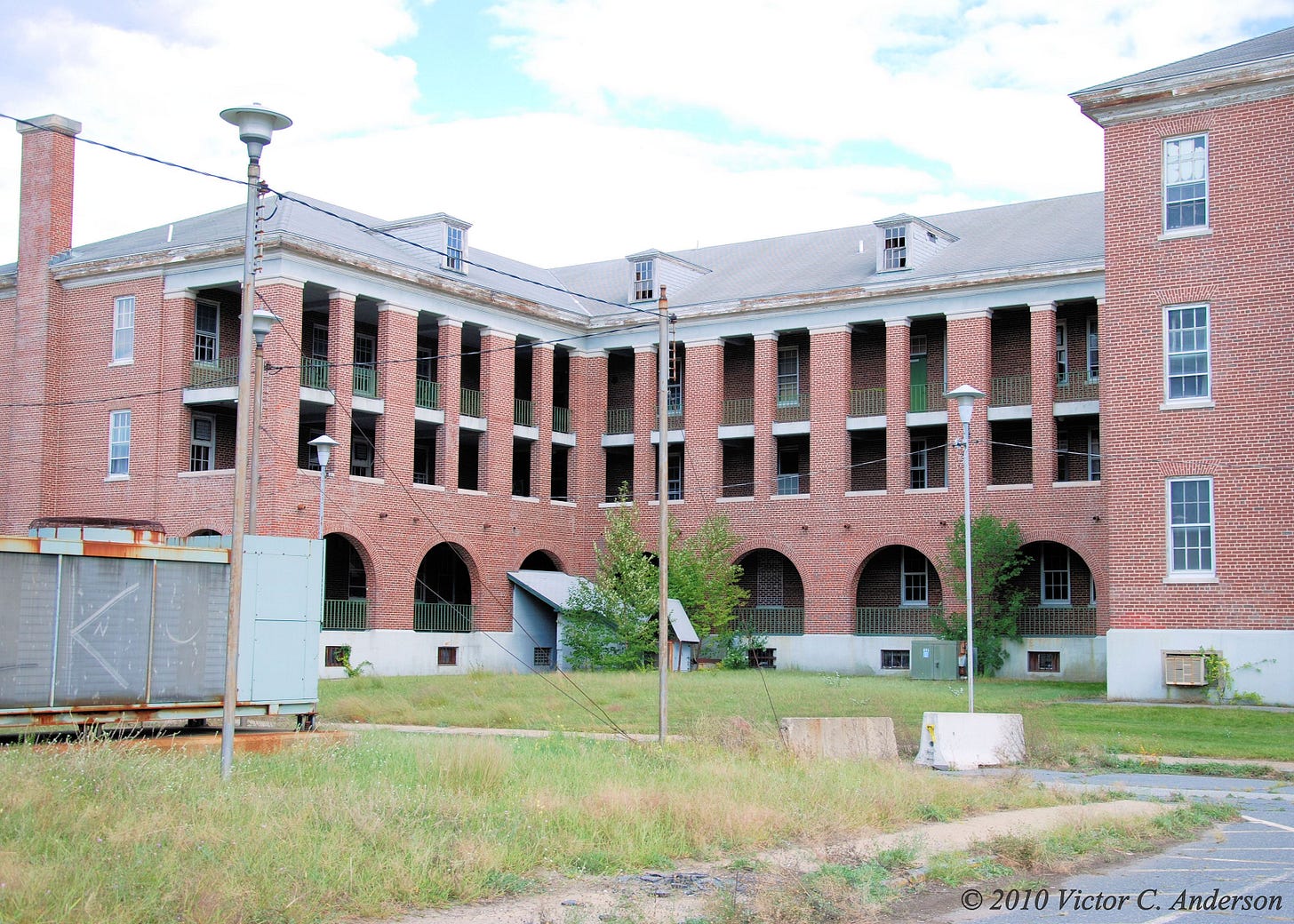Shaking up the Bay State’s insider political culture | New apartment, condo construction all but dead in Boston | NIMBY pols a real estate speculator’s best friends | Mainstream media’s shallow obsession with 1968 comparisons | Wu to make big speech to local biz community | Quick hits |
News tips? Story ideas? Email us at sbvanvoorhis@hotmail.com
The other villain: As a major suburban apartment project gives long-time tenants the squeeze, a hard-nosed real estate firm is not the only one to blame
Brady Sullivan Properties is Public Enemy No. 1 among tenants’ rights groups, slowly but surely transforming a modest, blue collar apartment complex in Ayer into higher-priced rentals.
Activists and long-time Devenscrest tenants desperate to hang onto their affordable digs in the sleepy suburb near I-495 protested this summer outside the real estate firm’s New Hampshire headquarters in hopes of forcing a sale of their complex to a new owner.
That’s because the Manchester-based firm has compiled a controversial track record across New England of buying older residential properties, doing some work, and then raising rents.
Still, the the next time embattled Devenscrest residents and their allies are looking to stage a protest, they might save a few dollars on gas - and find an equally worthy target closer to home - by waving their signs and chanting their slogans outside their local town halls.
For it is local officials and voters in Ayer and neighboring Harvard who have effectively created the market conditions that real estate investment firms like Brady Sullivan are exploiting.
Voters and local officials in Ayer and Harvard have killed not one but two plans over the years that would have transformed the long-empty Vicksburg Square barracks at the old Devens army base into hundreds of new apartments.
Town meeting voters in Ayer and Harvard shot down a proposal in 2012 that would have turned the old barracks, named after the pivotal Union Civil War victory, into 246 apartments for seniors and veterans.

Voters in upscale Harvard, where the median home price is now nearly $1 million, openly fretted about the possibility that poor and working class families would flock to the redeveloped army barracks and send their children to the town’s well-regarded schools.
Most of the units - 80 percent- would have been rented out at below market rates.
If Vicksburg Square had been redeveloped into badly needed apartments, it would certainly have provided an escape hatch for Devenscrest tenants reportedly unable to find any affordable alternatives on the market.
In fact, it would have been only fitting, as the 110-unit Devenscrest complex was built in the 1940s to provide homes for military families stationed at neighboring Devens.
But that’s not all. If the Vicksburg Square project had moved forward, it might have also opened the door or more housing at the old army-base-turned-industrial-park, which, with 4,400 acres, has space for thousands of new apartments, homes and condos.
And hundreds or even thousand of new units at Devens might just have been enough to deter a company like Brady Sullivan - which benefits from the housing shortage by snapping up older properties, fixing things up, and hiking rents - from buying Devenscrest in the first place.
Now efforts to turn Devens into a hub for new housing appear poised to make a comeback.
State lawmakers recently voted to lift a long-standing cap that had limited the amount of housing that could be built at Devens to an absurdly low number of units, though it’s not a done deal yet given that it’s stuck in an larger economic development that’s still pending.
When and if it passes, there may be hope for resurrecting some version of the old Vicksburg Square plan.
And that, in turn, will be bad news for Brady Sullivan.
The housing shortage has been a gold mine for real estate speculators. Take away the scarcity and you’ll take away their oxygen.
Not surprisingly, Brady Sullivan has a very different take on these matters.
In a statement to Contrarian Boston, the real estate firm accused Devenscrest tenants who have been protesting against the company of seeking a “free ride” and owing $20,000 in back rent.
The company contends it has pumped millions into fixing up the property, and that the original tenants continue to pay, on average, $900 per month in rent.
“Everyone in the Commonwealth knows that rent is not sustainable,” the company said.
Lovely.
File under: Fighting words.
Poking the bear: As state Auditor Diana DiZoglio campaigns to bring transparency to the State House, some potential donors are too skittish to give
Why? Well, for the most typically Massachusetts of reasons: They’re afraid of angering the legislative bosses on Beacon Hill.
That’s the word from the chair of the Committee for Transparent Democracy, which is heading DiZoglio’s ballot campaign to force the Legislature to open its books up to the state Auditor’s office for regular reviews and oversight.
Keep reading with a 7-day free trial
Subscribe to Contrarian Boston to keep reading this post and get 7 days of free access to the full post archives.



